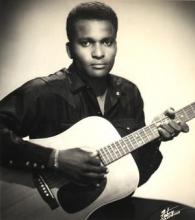White Man's Blues
In the world of musical entertainment many artists sometimes find a love of a musical type outside their cultural sphere.
White rappers (jokes in the music industry, for the most part) have managed to carve out a niche by usurping, emulating, and co-opting “black” culture in their “music”. Such artists, however, are tolerated (if not embraced) in that world and many of them (Beastie Boys or Eminem, for example) sell millions of dollars’ worth of product.
The world of rock ’n’ roll was an open door for race relations almost from inception. Black musicians and vocalists cozied up to white recording artists at the top of sales’ charts in the form’s earliest years. [Although some artists’ recordings, such as those by Little Richard, were considered too “racy” by white bread America and were ripped off and re-recorded, notoriously by Dot Records, by “safe” WASPs. Pat Boone’s toned-down rendition of the rollicking “Tutti Frutti” stands as a hilarious monument to such sanitizing. Even Fats Domino came in for the Dot Records treatment with Boone’s version of “Blueberry Hill”.]
Country music, stemming from its earlier recordings known as “hillbilly”, was not (and is not) a racially integrated music, although historically blacks have played major roles in its evolution. The artists and fans were not known as racially sensitive or particularly enlightened in matters of race relations; in many proven cases (as in Country records clearly using slanderous racial epithets) there was not only intolerance of African-Americans but downright hostility toward them.
Bizarrely, a lone black man in America (to date, the only one of significance) decided early in his career to buck the system. His love of the easy, laid-back twangy stylings of hillbilly music led that African-American man, against great odds and possible danger to his life, to embrace and insert himself into a culture that not only distrusted blacks in America but also hated them.
Charley Pride (who early in his career could not even put his picture on his singles’ sleeves or LP jackets over concerns of a racist backlash) not only gained acceptance within the hostile racism of Country music and its fans but he was successful, selling over 70 million records and having many hits. To date, however, he is the only black superstar Country music has ever produced.
